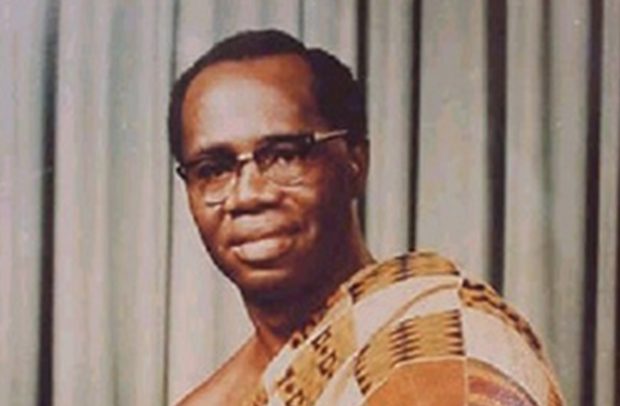K.A. Busia
The septuagenarian Anti Amma Busia, sister of the late Prime Minister K.A. Busia, yesterday paid tributes to her late brother in commemoration of the 43rd anniversary of his transition.
She told DAILY GUIDE that the memory of his transition is still fresh, “I always remember him with tears. Forty-three years after his death I cannot forget him. I am what I am today and brothers and sisters all of whom are no more because of him.”
She charged members of the New Patriotic Party (NPP) of which she is an elder “to imbibe the spirit of truthfulness, selflessness and respect for human dignity which my brother epitomised during his lifetime.”
Even as she spoke, the emotional pain in her was visible. Continuing, she said that her brother maintained the following adage throughout his lifetime, “Be your brother’s keeper.”
When we abide by this principle, the world and our country in particular would be a better place than the current situation.
Continuing to showcase the values of her late brother who was an academic icon in Ghana’s history, she said “he valued respect for the elderly and went ahead to ensure that the youth were taught this in school.”
This value has today disappeared from our society, she said, and asked that “we should all work towards restoring this Ghanaian value.”
Anti Amma Busia charged members of the NPP to learn from the sacrifice and love for country as exhibited by Danquah, Busia and Dombo.
The good intentions of the foregone, she went on, have contributed immensely towards bringing the country this far. “Had we continued to practice their principles we would have been better off as a country,” she said.
Dr. K.A. Busia was one of the leading academics and politicians in the formative period of the country.
He won an election with his Progress Party (PP) sweeping 104 out of 140 seats and became Prime Minister.
While in Britain for a medical checkup, he was overthrown by Col Ignatius Kutu Acheampong on January 13, 1972. He died in exile in 1978.
By A.R. Gomda


